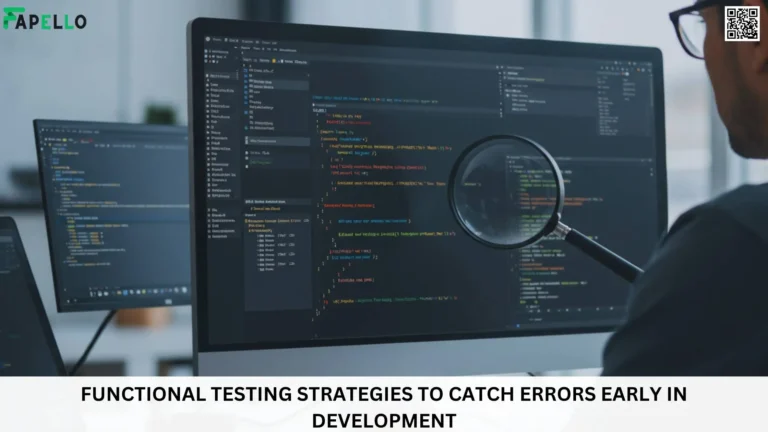Imagine landing a dream job interview, only for the hiring manager to pull up an old post that makes you cringe. Whether it’s an inappropriate photo, a heated argument, or misleading information, social media slip-ups can come back to haunt you.
Common Social Media Mistakes That Can Hurt Your Reputation
Social media platforms like Facebook, LinkedIn, and Twitter help job seekers build their personal brands and connect with potential employers. However, careless mistakes can damage your credibility and limit future opportunities. Here are some of the biggest pitfalls to avoid:
1. Posting Inappropriate Content
What you post online stays online—even if you delete it. Employers often check social media profiles during hiring, and an unfiltered post could raise red flags.
- Party photos with excessive drinking can suggest poor judgment.
- Offensive or controversial comments may make employers question your professionalism.
- Complaints about a past job can signal a potential workplace issue.
According to a CareerBuilder survey, 70% of employers screen candidates through social media, and nearly 57% have passed on applicants due to questionable content. A quick review of past posts—and being mindful of future ones—can go a long way in protecting your reputation.
2. Engaging in Online Arguments
Getting caught up in heated debates online is easy, but public arguments can make you look unprofessional. Whether it’s a disagreement on Twitter or a comment thread that spirals out of control, engaging in negative discussions can harm your credibility.
How to avoid this:
- Keep responses professional, even if someone provokes you.
- Avoid personal attacks or inflammatory language.
- Take a step back before responding impulsively.
Disagreements happen, but maintaining composure online shows emotional intelligence—something employers and business partners value.
3. Misrepresenting Yourself
Exaggerating qualifications or past experiences on LinkedIn or other platforms can have lasting consequences. Employers and recruiters fact-check information, and dishonesty can permanently damage trust.
Real-world example:
Elizabeth Holmes, former CEO of Theranos, built a fraudulent empire by misrepresenting her company’s capabilities. Her downfall reminds us that fabricating achievements can lead to severe consequences, including legal trouble.
For professionals, even small embellishments can backfire. Always be honest about skills, experience, and achievements to build a reputation based on credibility.
4. Oversharing Personal or Confidential Information
In an era of oversharing, posting personal details can lead to identity theft, unwanted attention, or professional consequences.
Common mistakes include:
- Sharing workplace complaints or private company information.
- Posting sensitive financial details or home addresses.
- Accepting friend requests from unknown individuals.
To safeguard your privacy:
- Review and adjust social media privacy settings regularly.
- Be selective about who can see your posts.
- Think twice before sharing personal or work-related details online.
5. Ignoring Privacy Settings
Neglecting privacy settings can make personal posts accessible to employers, colleagues, and even strangers. A single search can reveal more about you than you might expect.
Simple fixes:
- Limit the visibility of personal posts to friends.
- Regularly audit old posts and delete anything questionable.
- Use Google Alerts to monitor mentions of your name.
Staying on top of your digital footprint ensures that what people find about you aligns with your professional goals.
The Consequences of Social Media Slip-Ups
Ignoring these missteps can lead to real-world consequences, including:
- Missed Job Opportunities
- Legal Issues
- Loss of Trust and Credibility
Your online reputation is just as important as your resume. Remembering what you post can mean the difference between landing a great opportunity and missing out.
How to Avoid Social Media Mistakes
Want to maintain a professional and polished online presence? Here’s how:
Think Before You Post
Before sharing anything, ask yourself:
- Would I be comfortable if a future employer saw this?
- Does this align with my personal and professional values?
- Could this be misinterpreted?
Taking a moment to reflect before posting can prevent regrets down the line.
Separate Personal and Professional Profiles
Keeping personal and professional accounts distinct can help maintain boundaries. Consider using LinkedIn for career growth while limiting personal content to close friends.
Regularly Check Your Privacy Settings
Social media platforms frequently change their privacy policies. Set reminders to review your settings to ensure your information stays protected.
What to Do If You’ve Made a Social Media Mistake
If you’ve already made a misstep, don’t panic—there are steps you can take to repair your online reputation.
- Apologize and Take Responsibility
- Delete or Update Problematic Content
- Seek Professional Help
Protect Your Digital Reputation
Your social media presence is often the first impression people get of you, so make it count. By avoiding common missteps and taking a proactive approach to online reputation management, you can build a positive digital footprint that supports your personal and professional goals.
Small changes in how you engage online can have a big impact. Think before you post, set strong privacy controls, and always present yourself in a way that aligns with the opportunities you want to attract.






